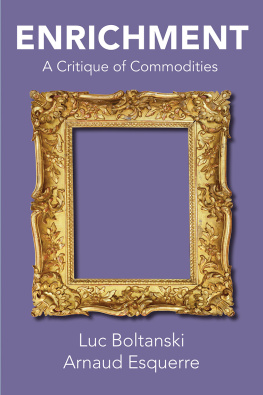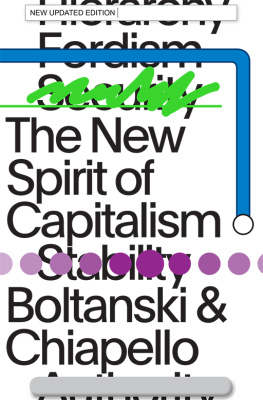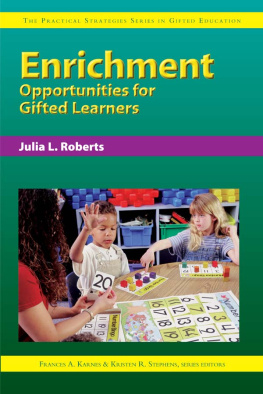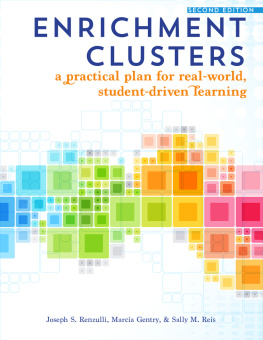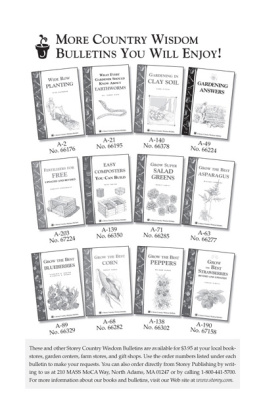
For Dominique
Enrichment
A Critique of Commodities
Luc Boltanski and Arnaud Esquerre
Translated by
Catherine Porter
polity
First published in French as Enrichissement Editions Gallimard, Paris, 2017
This English edition Polity Press, 2020
This work received the French Voices Award for excellence in publication and translation. French Voices is a program created and funded by the French Embassy in the United States and FACE Foundation (French American Cultural Exchange)
French Voices Logo designed by Serge Bloch.
Polity Press
65 Bridge Street
Cambridge CB2 1UR, UK
Polity Press
101 Station Landing
Suite 300
Medford, MA 02155, USA
All rights reserved. Except for the quotation of short passages for the purpose of criticism and review, no part of this publication may be reproduced, stored in a retrieval system or transmitted, in any form or by any means, electronic, mechanical, photocopying, recording or otherwise, without the prior permission of the publisher.
ISBN-13: 978-1-5095-2874-5
A catalogue record for this book is available from the British Library.
Library of Congress Cataloging-in-Publication Data
Names: Boltanski, Luc, author. | Esquerre, Arnaud, author.
Title: Enrichment : a critique of commodities / Luc Boltanski and Arnaud Esquerre; translated by Catherine Porter.
Other titles: Enrichissement. l English
Description: Cambridge, UK ; Medford, MA : Polity Press, [2020] | First published in French as Enrichissement, (c) Editions Gallimard, Paris, 2017--Verso. | Includes bibliographical references and index. | Summary: This book offers a major new account of modern capitalism and of the ways in which value and wealth are created today--Provided by publisher.
Identifiers: LCCN 2019035403 (print) | LCCN 2019035404 (ebook) | ISBN 9781509528721 (hardback) | ISBN 9781509528745 (epub)
Subjects: LCSH: Commercial products--Europe, Western. | Capitalism--Europe, Western. | Cultural property--Economic aspects--Europe, Western. | Europe, Western--Commerce. | Europe, Western--Economic conditions.
Classification: LCC HF1040.9.E84 B6413 2020 (print) | LCC HF1040.9.E84 (ebook) | DDC 330.94--dc23
LC record available at https://lccn.loc.gov/2019035403
LC ebook record available at https://lccn.loc.gov/2019035404
The publisher has used its best endeavours to ensure that the URLs for external websites referred to in this book are correct and active at the time of going to press. However, the publisher has no responsibility for the websites and can make no guarantee that a site will remain live or that the content is or will remain appropriate.
Every effort has been made to trace all copyright holders, but if any have been overlooked the publisher will be pleased to include any necessary credits in any subsequent reprint or edition.
For further information on Polity, visit our website: politybooks.com
Acknowledgments
In carrying out this work, we have benefited from the help of many people; it would be impossible to name them all.
We wish to thank, first, all those who participated in our seminar at EHESS between 2012 and 2016. In 201213, these included Michela Barbot, Christian Bessy, Sbastien Chauvin, Bruno Cousin, Emmanuel Didier, Jeanne Favret-Saada, Marion Fourcade, Marie-France Garcia-Parpet, Isabelle Graw, Catherine Grenier, Guido Guerzoni, Brnice Hamidi-Kim, Laurent Jeanpierre, Lucien Karpic, Jeanne Lazarus, Patrice Maniglier, Andr Orlan, Olivier Roueff, Simon Susen, Mathieu Trachman, Emmanuel de Vienne, and Daniel Urrutiaguer; in 201314: Fabien Accominotti, Jacques Bournay, Delphine Corteel, Sophie Cras, Camille Herlin-Giret, Judith Ickowicz, Anne Jourdain, Michal Kozlowski, Michle Lamont, Sylvain Laurens, Ashley Mears, Michel Melot, Alain Quemin, Thomas Piketty, Cyprien Tasset, Laurent Thvenot, Tommaso Vitale, and Loup Wolff; in 201415: Thierry Bonnot, Marie-Charlotte Calafat, Bernard Conein, lice Dubuc, Stphane Gerson, Marie Gouyon, Frdric Keck, Anthony Kohn, Baptiste Monsaingeon, Yves Moulin, Fabian Muniesa, Frdrique Patureau, Michel Rautenberg, Bndicte Savoy, Martine Segalen, and Olav Velthuis.
Some components of this work were published along the way, and we wish to thank in particular the editorial boards and copyeditors of Sociologie, Les Temps modernes, Teoria Politica, and Valuation Studies.
We presented our work at colloquia and in lectures at the Kunstsammlung Museum in Dsseldorf in January 2014, at the invitation of Heinz-Norbert Jocks; at the Museum of European and Mediterranean Civilisations (MuCEM) in Marseille in January 2014, at the invitation of Delphine Corteel; at the Museum of Modern Art in Warsaw in November 2014, at the invitation of the Bec Zmiana Foundation and at the initiative of Michal Kozlowski; at the Centro de Cultura Contempornea of Barcelona in February 2015, at the initiative of Peter Wagner; at the University of Westminster in London in June 2015, at the initiative of Chantal Mouffe; on the occasion of the fiftieth anniversary of the Danish Sociological Association in Copenhagen in October 2015, at the initiative of Niels Albertsen; at the University of Turin in March 2016, at the initiative of Massimo Cuono, where we had the pleasure of a first debate with Nancy Fraser; in May 2016 in New York, first at the New School for Social Research, at the invitation of Mark Greif, where we continued our discussion with Nancy Fraser; then at the Maison Franaise of New York University, where we were welcomed by Frdric Viguier and Stphane Gerson; and, finally, at Princeton University, in the context of the Fung Global Fellows Program.
We learned a great deal from the interventions and discussions that took place during the seminar Valeur, prix et politique, organized by Christian Bessy at the ENS-Cachan during 201215, as well as during the seminar Art/Valeur, co-organized in particular by Patrice Maniglier in 201416 at the Muse du Quai Branly, which gave us the opportunity to present our work at the cole suprieure des beaux-arts of Montpellier in October 2015. We also presented our work and had useful exchanges at the seminar Anthropologie Nanterre of the Laboratoire dethnologie et de sociologie comparative (LESC) in December 2013 at the Universit Paris-Ouest Nanterre; during a Max Po lecture at Sciences Po in Paris, at the initiative of Olivier Godechot, in December 2014; and during a session of the seminar Exercer la domination at the ENS-Ulm in May 2016, at the initiative of Pierre Alayrac.
A nearly complete version of the manuscript was discussed during a day-long conference devoted to it on Monday, 4 July 2016, at the LESC at the Universit Paris-Ouest Nanterre; we thank the laboratory for welcoming us, and we are particularly grateful to our readers, who are at once colleagues and friends, for their comments: Pierre Alayrac, Guillaume Couffignal, Sophie Cras, Laurent Jeanpierre, Jeanne Lazarus, Patrice Maniglier, Ismal Moya, and Cyprien Tasset. We have also benefited greatly from observations by Bruno Cousin and Olivier Favereau and from the support of IRIS and its director Marc Bessin. Patrice Maniglier has been a constant interlocutor, accompanying and enriching our thinking, especially by making connections with philosophy, as Guillaume Couffignal has done with mathematics.
To carry out our investigation we called on numerous informants: antique dealers, craftsmen, artists, business executives, entrepreneurs, collectors, auctioneers, art critics, conservators, curators, top government officials, elected officials, and staff members of local collectivities. We thank them here for their trust and their availability.
Next page
